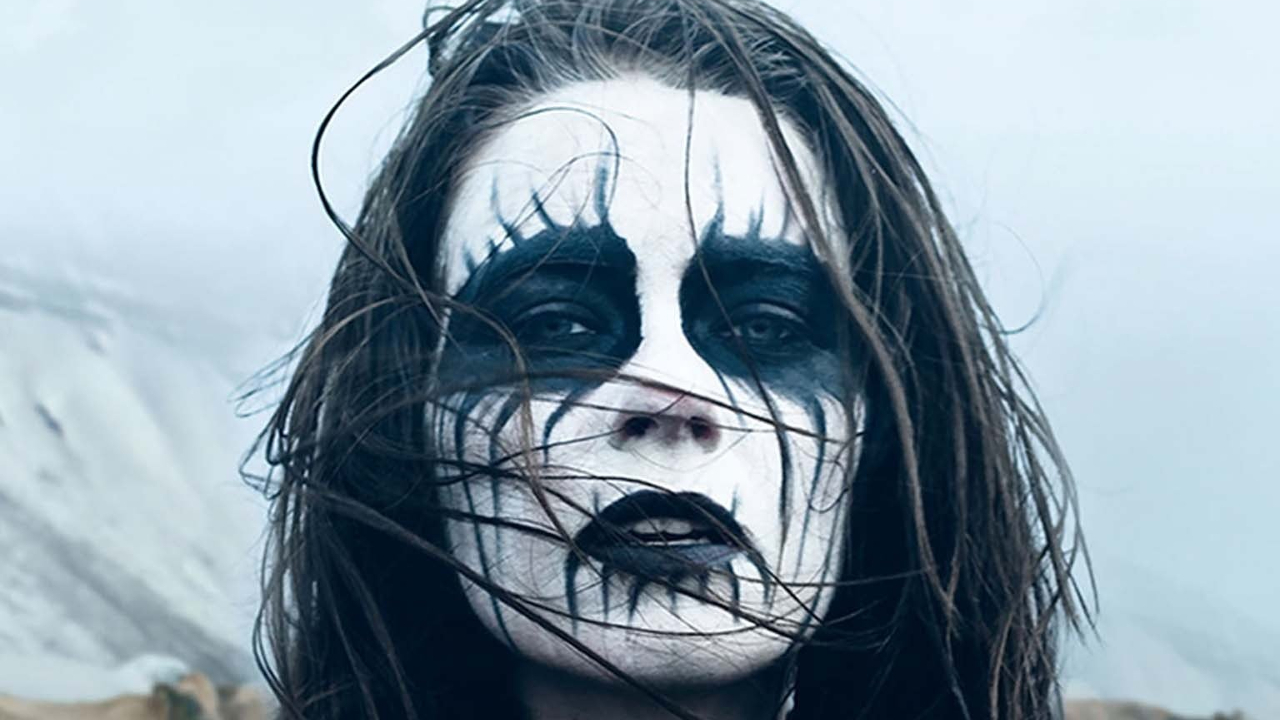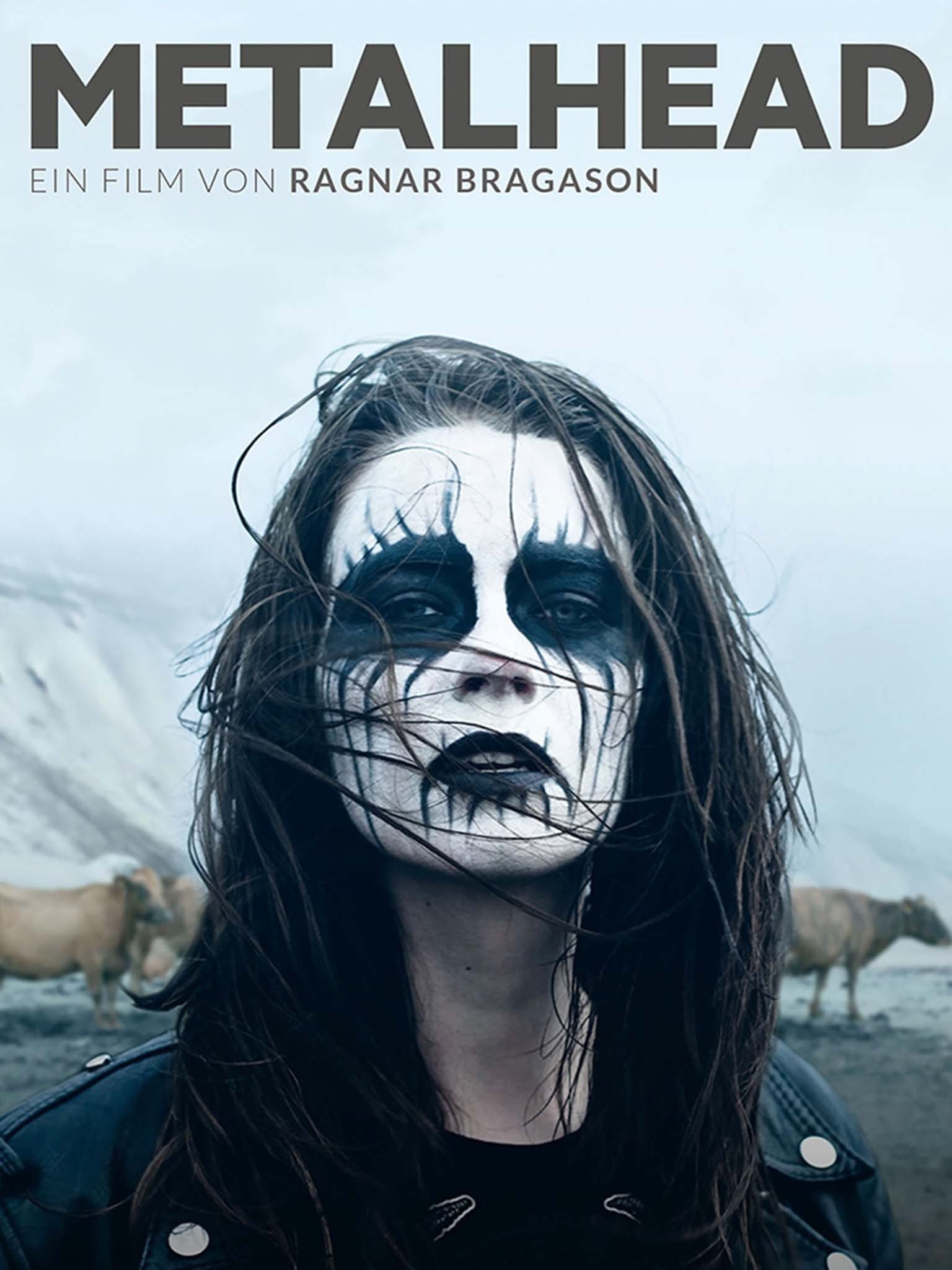
Metalhead explores the vast dimensions of grief and the redemptive power of heavy metal while having a tone as dark as leather. Released in 2013, this award-winning Icelandic drama boasts a turbo-charged metal soundtrack and authentic portrayals of the genre’s subculture. It avoids any of the formulaic niceties of conventional cinema, instead diving into an existential abyss where music lends catharsis for pain, identity and the isolation of rural life.
Writer/director Ragnar Bragason conceived Metalhead while teaching a course in film acting at the Academy Of The Arts in Iceland. Speaking to Wyrd Words & Effigies in 2014, he said, “The story didn’t present itself to me until around 2009, when I got an image into my head. It was of a girl in a leather jacket, holding a Flying V guitar, surrounded by cows.” It was a collage of contrasts: docile cows cut against a girl holding a hard, pointed instrument.
One of Bragason’s students was Thora Björg Helga, and when she revealed her expansive talents, the filmmaker realised that the image in his head now had a face. That image eventually blossomed into an underground classic. Metalhead premiered at the Toronto International Film Festival on September 7, 2013, and would go on to snag an impressive 17 nominations at the 2014 Edda awards (the Icelandic equivalent of the Oscars). It won eight, including Best Actress, Best Supporting Actor, Best Supporting Actress and Best Music.
Centred around a riveting performance from Helga, Metalhead delves into the life of Hera: a bruised and rebellious young woman living on a remote Icelandic farm in the ’80s. Following her brother’s sudden death, she immerses herself in heavy metal as both a memorial to him and a hostile rejection of God, whom she blames for the tragedy. Her parents are shattered, unable to process the loss in any meaningful way; they leave their son’s room as a shrine in which every poster, cassette and pencil remains exactly as it was on the day he died. They turn to the church for support but remain mired in anguish.

Meanwhile, Hera turns to alcohol, antisocial behaviour and increasingly destructive episodes of violence, finding respite only in her brother’s mixtapes and eventually in learning how to play his guitar. When she subsequently forms a black metal solo project, it’s a raw, desperate coping mechanism rather than a stylistic choice.
There is nothing cliche about metal in Metalhead. The genre has a prominent, dignified role as the language of both grief and connection. Music, clothing and multiple references to Judas Priest, Megadeth, Diamond Head, Venom and Celtic Frost all appear in one way or another. There are also some excellent deep cuts from Lizzy Borden and Teaze, Canada’s unsung hard rock heroes.
Adding to Metalhead’s authenticity is that Helga played her own guitar parts. Speaking to Vice, Bragason shared that in the year-long run-up to filming, the actress learned to play the instrument quite convincingly. “She had two teachers,” he said. “And then we had a great black metal band called Angist, with two girls playing guitar and singing. They allowed her to hang out with them in their rehearsing room and took her through the moves and everything.”
One of the film’s more daring aspects is its evocative portrayal of a female protagonist in a subculture considered predominantly male. Gratifyingly, Hera is not a token woman in this role, but rather a vessel for metal’s anger, despair and, eventually, its redemptive power. The character’s performance of a song called Svarthamar at the end, with its trembling guitar and ethereal vocals, is a convincing black metal showcase that recalls Myrkur at her fiercest.
Helping all this authenticity is that Bragason is a committed metalhead and understands the mental health benefits of music. Speaking to Noisey in 2014, the writer/director said, “[It’s] one of the things that intrigued me – you can use art and music to help you. If I analyse why I listened to metal music as a kid, it was that I felt the reality of it. It didn’t have the mushy elements of pop. It was real and it was dealing with more serious issues. It can be intellectual music, but it’s also about release. I mean, I listen to Slayer when I want to relax. I think metal music got me through my teens. I would’ve gone crazy without it.”
You wouldn’t call it a feelgood film, but Metalhead ends on an upbeat, affirmative tone that brings closure without feeling formulaic. Ultimately, the movie is neither easy nor predictable. Nor can it be described as simply a story of a girl who loves metal. Rather, it’s a transfixing study of grief, identity and art brought to life by strong writing and bold performances. With profound themes, relatable characters and a story that elevates the human spirit, Metalhead raised the stakes for what a music film can be.







